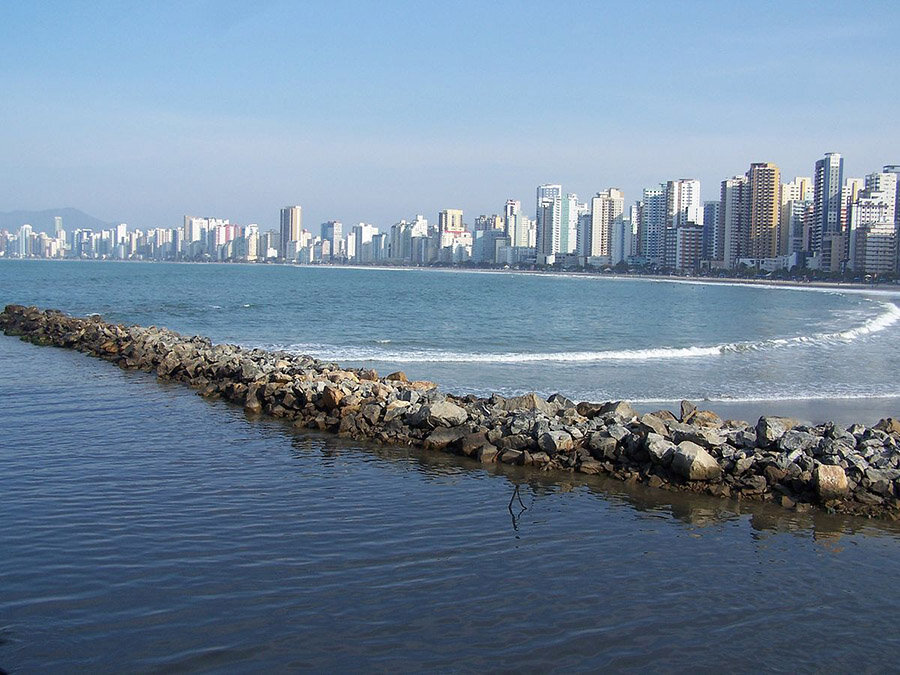Brazil to Build One of the World’s Tallest Residential Towers

In the coastal city of Balneário Camboriú, Brazil has launched its most ambitious residential project to date — the Senna Tower, named after Formula 1 legend Ayrton Senna. The skyscraper aims to become the tallest all-residential building in the world, sparking both admiration and controversy among professionals and locals, Bloomberg reports.
Brazil’s “Dubai” Reaches for the Sky
The project’s scale is unprecedented: 157 floors, over 540 meters high, with a budget of R$3.5 billion (approximately $686 million). Completion is scheduled for 2033. The final height will depend on structural decisions around the spire, but it’s already competing with New York’s Central Park Tower and planned projects in Dubai.
Developer FG Empreendimentos, which has over 60 properties in the region, is leading the project alongside global engineering experts like Fatih Yalniz and Harry Poulos — renowned for their work on some of the world’s tallest towers.
Senna Tower will offer ultra-luxury residences, including three 910-square-meter penthouses, each estimated to cost R$300 million (around $58.8 million). FG is reportedly in talks with Sotheby’s for a high-profile auction, positioning the tower as a global trophy asset. Sales have already begun, with projected revenues reaching R$8.5 billion.
The tower also pays tribute to Ayrton Senna, with his family involved in the design concept. The developer stresses the building’s architectural uniqueness and cultural importance as a national symbol.
Local Controversy and Urban Concerns
Despite the prestige, the tower has drawn criticism from architects and urbanists. With Balneário Camboriú’s population at just 170,000 and a tourism-dependent economy, many argue the tower fails to address real urban needs. São Paulo architecture professor Marcos Lazzarotto argues that such projects offer a false sense of progress, while FG maintains that vertical construction is key to optimizing land use.
The city is often referred to as the "Dubai of Brazil" for its luxury beaches and skyline. Over 100 skyscrapers tower above 100 meters, with demand growing. Real estate prices have soared, with an average square meter now costing R$14,206 ($2,785), according to FipeZAP. Neighboring cities like Itajaí and Itapema are also seeing significant price hikes.
Brazil’s Real Estate Market in 2025
According to The Rio Times, Brazil’s housing market posted record growth in 2024, with average prices rising 7.73% — the highest rate since 2013. The housing price index reached 170.5 points in January 2025.
Statista estimates Brazil’s real estate market is worth $8.84 trillion, with residential properties accounting for $7.15 trillion. Annual growth is projected at 1.22% through 2029.
The luxury segment is thriving, with sales of premium homes rising 18.4% in 2024, especially in areas like Brasília’s Park Way and the southern coastal regions, according to The Latin America Investor.
Risks and Market Pressures
Despite booming growth, risks remain. Brazil’s Selic interest rate rose to 14.25% in March 2025 — its highest in a decade, as Reuters notes. This dampens mortgage accessibility and could cool demand for new builds.
Housing prices are outpacing inflation, squeezing the middle class, particularly in cities like Curitiba and Salvador.
Political volatility is another risk. The 2026 municipal elections could alter zoning laws and tax policies, according to Moody’s, impacting future developments.
Infrastructure strains are also emerging. Cities like Balneário Camboriú are already feeling pressure on transportation, water, and waste systems. Without proper urban planning, the quality of life may decline, warns the Urban Land Institute.








